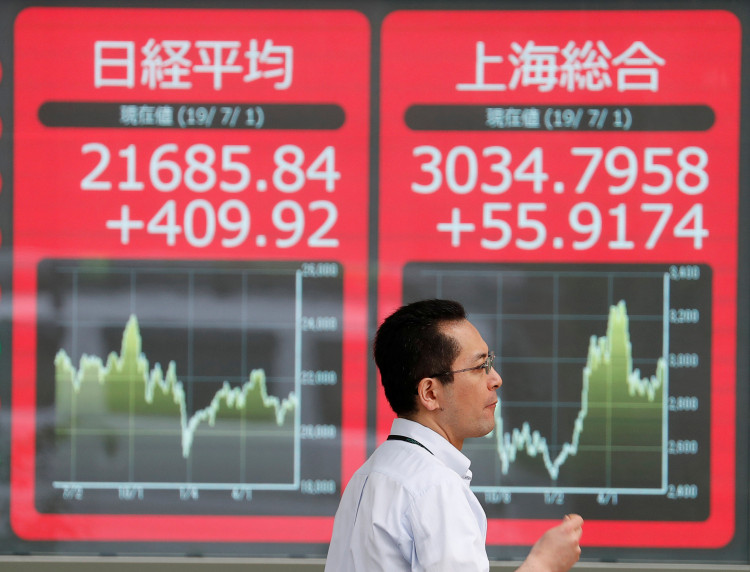Japan's Nikkei 225 index has soared to unprecedented heights, eclipsing the peak set during the bubble era of 1989 and signaling a new chapter in the country's economic narrative. The index closed at 39,098.68, up by 2.2%, surpassing the previous high of 38,915.87 established over three decades ago. This surge is particularly notable against the backdrop of Japan's current economic challenges, including a recession and weakening indicators across exports, manufacturing, and services.
The journey from the depths of post-bubble stagnation, where the Nikkei once languished below 7,000, to this new zenith has been propelled by a confluence of factors. The revival began with a series of market-boosting measures initiated by the late Prime Minister Shinzo Abe in 2013, and the momentum has been sustained by robust foreign investment, particularly in technology shares.
The rally on Thursday was significantly buoyed by the semiconductor sector, following Nvidia's announcement of a tripling in revenue due to the burgeoning demand for artificial intelligence technology. Major Japanese tech firms like Tokyo Electron, Advantest Corp., and SoftBank Group Corp. witnessed substantial gains, contributing to the Nikkei's historic rise.
This resurgence comes at a time when global investors are increasingly turning their gaze towards Japan, shifting away from markets like China due to its economic slowdown and geopolitical tensions with the United States. The attractiveness of Japanese stocks has been further enhanced by record corporate earnings and significant improvements in corporate governance.
Hiromi Yamaji, Group CEO of the Japan Exchange Group, noted the shift in investor sentiment, particularly among the younger generation who are less deterred by the memories of the past bubble's burst. This changing demographic, along with the introduction of the Nippon Individual Savings Account program offering tax-free gains, has injected new vigor into the Japanese stock market.
Moreover, the weak yen has made Japanese stocks more appealing to foreign investors, with international buyers doubling their purchases of Japanese stocks in January compared to a year earlier. The technology sector, in particular, has been a significant winner, mirroring trends in the United States.
Despite these gains, experts assert that Japanese shares are not overvalued, with the Tokyo market's price-to-earnings ratio standing at about 16, compared to higher ratios in other major markets. This suggests room for further growth, with some traders like Tony Sycamore of IG in Sydney predicting that the Nikkei could soon target the 40,000 mark.
The Nikkei's record-breaking performance has been met with cautious optimism in Tokyo's brokerages, a stark contrast to the exuberance of 1989. This tempered response reflects a broader recognition that while the stock market's resurgence is a positive sign, it is not wholly indicative of the overall health of the economy.
As Japan navigates this new financial era, the focus will increasingly be on sustaining this growth through continued innovation, strategic investments, and adaptive economic policies, ensuring that the market's rise translates into broader economic benefits.






